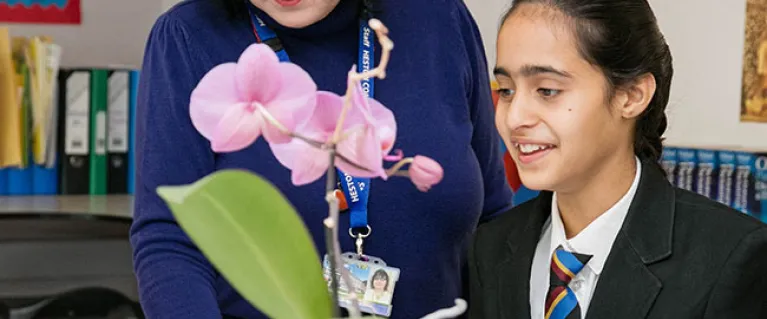
Frequently asked questions: 2015 criteria for Secondary schools
This page contains the frequently asked questions relating to the 2015 Gold Club criteria for Secondary schools.
The English Baccalaureate represents a good standard of achievement in terms of grades achieved (A*-C), but also demands a broad GCSE curriculum to have been undertaken in subjects which are known to provide good university entry options when pursued to A level.
The English Baccalaureate threshold for schools with less than 50% of pupils eligible for the Pupil Premium and more than 10% of pupils in the low prior attainment band is set at 24% in order to select schools achieving above the England average of 23% for this measure and moving towards the London average of 30%.
This reflected the Mayor’s Education Inquiry’s focus on ensuring a ‘stretch element’ for all children and the Mayor’s desire that London schools are more ambitious for those who are in the middle and at the top, as well as disadvantaged groups.
This measure is used in the secondary school Gold Club criteria except in the case of schools with high proportions of pupils eligible for Pupil Premium or high proportions of pupils with low prior attainment at Key Stage 2.
These schools currently have low English Baccalaureate achievement and entry rates that would not enable a workable English Baccalaureate criterion to be applied. This will be kept under regular review.
These schools have selective intakes which are understandably reflected in high average achievement rates. The threshold is set at 90% in order to identify schools which have delivered exceptional results taking into account the nature of their pupil intake.
Extra information
Some highly regarded independent schools will be unable to meet the English Baccalaureate (EBacc) criterion. This is because they may have some pupils taking separate sciences, but not at least three of the four separate sciences of Physics, Chemistry, Biology and Computer Science needed for the EBacc. Also, some of their pupils may not be taking a language or a humanities subject.
Nationally, a lower than average percentage of pupils eligible for Pupil Premium achieve the expected GCSE standard of 5+ grades A*-C including English and maths each year. This gap is smaller in London than nationally but recently the gap between the results of non-Pupil Premium and Pupil Premium pupils in London is widening.
A central purpose of the Gold Club is to identify schools which buck the trend for the most disadvantaged pupils, so this measure is used to capture schools’ performance for deprived pupils.
The national average for pupils achieving 5+ GCSE A*-C including English and maths for all pupils in 2014 was 53% and the London average was 64%. By setting the threshold for Pupil Premium pupils above the England average and at the mid-point approaching the higher London average, the Gold Club sets an ambitious target of achievement for London’s deprived pupils.
A key criterion for the Gold Club is to ensure that pupils make significant progress between KS2 and KS4. Pupil progress can be assessed in a number of different ways. This year we have used the Best 8 value-added progress measure and identified schools where pupils make progress in their best 8 GCSE subjects that is significantly above the national average.
Gold Club schools should be ensuring that their pupils are equipped to compete with those from the best performing international jurisdictions and not just with other English cities. Therefore we are recognising exceptional schools that ensure all their pupils are attaining highly throughout the school system, from primary to secondary levels, and are well placed to succeed afterwards.
Need a document on this page in an accessible format?
If you use assistive technology (such as a screen reader) and need a version of a PDF or other document on this page in a more accessible format, please get in touch via our online form and tell us which format you need.
It will also help us if you tell us which assistive technology you use. We’ll consider your request and get back to you in 5 working days.